 Gowri Ishwaran, Chief Executive Officer, The Global Education & Leadership Foundation says, teachers today are not only knowledge giver but facilitator also
Gowri Ishwaran, Chief Executive Officer, The Global Education & Leadership Foundation says, teachers today are not only knowledge giver but facilitator also
Please tell us about the Global Education & Leadership Foundation.
The Global Education & Leadership Foundation (tGELF) is a programme initiative of The Nand & Jeet Khemka Foundation. It was launched by Prime Minister, Dr Manmohan Singh, five years ago. The mission of the foundation is to identify, mentor, nurture and guide future leaders, but leaders with a difference.
Generally, leaders stand on four pillars: leadership skills, ethics, altruism or your desire to help and reach out and share, and the ability to act. Unless all these four pillars work together, you cannot be a change maker. Most of the programmes today are at the university level which is too late to change because attitudes have already been formed by then.
We enter schools when kids are at the age of 12-13 and be with them for at least five years. We have modules that work on all the four pillars in a fun way: through games, activities, and discussions. We hope to impact the outlook of the kids through this. When they finish school, we induct the best amongst them into our leaders’ forum. We hope to make our children leaders the change makers that the world needs to fix the risks and challenges ahead of us.
You have a partner network of schools that you are catering to. What is the reach of the schools you have?
We have about 75 schools in India and Bhutan. We have reached to about 65,000 kids and trained over 1,000 teachers. But we realise that we need to reach out to more. So our plan is to convert our curriculum into a digital format and reach out to at least the second- and third-tier cities that have access to the Internet. The challenge is not only to convert, but also to track and supervise. In India, a larger penetration is through mobile phones so we are partnering with young global leader from the US to accept that market and reach even to remote corners through mobile apps.
What are the specifications for future training? What are you specifically dealing with?
It is a mixture of leadership skills and ethics or value system. Our curriculum is a mix of both, but we are not didactic. We want the children to explore and discover for themselves because then they take ownership of it. Earlier, a teacher was seen only in a single capacity: the giver of knowledge. But today, you are not the giver of knowledge, you are the facilitator.
And we try and make that transition through our training programmes. With the Internet, kids do not need you to access information; they need you to help them discover what to access and how. There is a quote from Khalil Gibran, a Lebanese-American artist, poet and writer: the job of education is to take a person up to a door and leave him there. And when he crosses that door, it is all that you have given him that he has to make use of, but he has to make his own choices and decisions.
What are the areas that require specific attention in the education sector?
One of the most pressing factors is teachers’ training. In India, we have archaic teacher training programmes that don’t equip our teachers with modern strategies. It doesn’t help them transform from a knowledge giver to a facilitator. And nowadays, there is a one-year training programme which is insufficient.
A doctor is trained for four years because he deals with the human body, but a teacher deals with the human mind and should be trained for at least two years. Education is dynamic because it is related to human life. Education can’t stay stride. Therefore, it cannot have a curriculum which is fixed forever. It needs to revamp every two to three years. And because 21st century is a century of knowledge, you have to run even more.
The government has been bringing in a lot of reforms. Do you think the government is doing enough to promote the school education sector?
The government has passed the Right to Education Act. It is a step in the right direction but there is insufficient emphasis on the monitoring of quality. There are many more millions of children in the classrooms but what are they learning? The government needs to step in and see what it can do to ensure quality learning. It should not look at this as an end; but as the beginning. It should incentivise teachers and provide proper infrastructure like blackboards, because a teacher cannot deliver without that.
The government should also adopt technology to monitor quality. Every state can have a district hub and a central data system. We are the technology leaders of the world in many ways and it is a pity that we are not using it enough. Higher education will pay off only if schools, the foundation, do well.
How do you impart training to schools, students and teachers?
We create hubs and train the teachers there. The teachers, in turn, communicate in the classroom. The student will react better if it is an in-house activity. Anything external is never taken with that degree of concentration or application.
What best practices from across the globe can be replicated into India?
We are only looking at the skills that you will need in the years to come, not the years that have gone past or even present. We are already working as partners with Howard Gardner from the Graduate School of Education, Harvard University. His project, The GoodWork Project, deals with values and we are getting training from them.
We also work with Dr Daniel Shapiro, Harvard Law School, on how to impart negotiation skills to school children because we think that we are all going to need that skill in the future. There are a lot of teaching best practices and we work with the Teachers College at Columbia University which is on the cutting-edge of teaching strategies. They revamp the curriculum almost every year.
They help a lot in conducting training on conflict resolution and ethical dilemmas. We have also taken the Gross National Happiness Index from Bhutan. We have discovered that in running after the Western education, we have turned our backs on India’s strength: our spiritual heritage.
Spiritual is not equated with religion. It means knowing yourself and becoming an evolved human being, and seeing your relationship with others and rest of the world. It is not ‘I’ and ‘my’; it is ‘my’ and ‘others’. We have made that an integral part of our curriculum. We give meditation sessions to our children on things like counting and thanking in your heart the number of people who have helped you in the last one week. We make them realise the connect outside and that they cannot survive by themselves.
Lifelong learning is also a part of our programme because you never stop being a learner. We use the poem from Alfred Lord Tennyson in which he goes to an arch in a boat and he sees the horizon. When he crosses the arch, he finds that the horizon is still far away. That is how knowledge and learning are – never-ending.
Please highlight more on your foreign collaborations.
Our collaboration is rooted in our kids who go from here. We encourage them to go to the leading universities so that they can get the best possible skills. For example, the Brown and Lehigh univer- sities give us free summer placements,so we send children from rural areas there. It is like a window for them into the outside world. We partner with the University of Pennsylvania and Whar- ton on the intellectual stimulation of the kids and holding seminars.
The Teachers College at Columbia University works with us on teacher training techniques, mentoring and measuring. We also work with Harvard University’s Law School and the Graduate School of Education and share a very good link with Cornell. We have a very good relationship with Yale and also send our children for summer internships to the Columbia University’s Earth Science Department.
 Chances are if you ask children what they fear the most in school, you will hear a resounding – ‘Maths’! And ask them what they enjoy the most – and it would very likely be a unanimous ‘games’
Chances are if you ask children what they fear the most in school, you will hear a resounding – ‘Maths’! And ask them what they enjoy the most – and it would very likely be a unanimous ‘games’ National Mathematical Year The year 2012 has been declared as National Mathematical Year by Prime Minister, Dr Manmohan Singh, to commemorate the 25th birth anniversary of the Indian mathematician, Srinivasa Ramanujan. His birthday on December 22 will also be celebrated as National Mathematics Day every year.
National Mathematical Year The year 2012 has been declared as National Mathematical Year by Prime Minister, Dr Manmohan Singh, to commemorate the 25th birth anniversary of the Indian mathematician, Srinivasa Ramanujan. His birthday on December 22 will also be celebrated as National Mathematics Day every year.












 Please tell us about your journey so far.
Please tell us about your journey so far. Our vision for education 2020 in India relies on participatory approach that is very important for the success of education in India. We have developed a simple model to illustrate the basic dynamics of our collaborative vision for education initiatives in India through- out their lifecycle. The model explains how we envision the education projects relating to each other, and differentiates the process of an education collaborative from its conception to the documentation of its success.
Our vision for education 2020 in India relies on participatory approach that is very important for the success of education in India. We have developed a simple model to illustrate the basic dynamics of our collaborative vision for education initiatives in India through- out their lifecycle. The model explains how we envision the education projects relating to each other, and differentiates the process of an education collaborative from its conception to the documentation of its success.

 Envisaging the ePunjabSchool project is to monitor the delivery of quality of education at school level as well as administering the internal functions of schools. This covers all government schools about 18,500. Currently the project has been opened to 6,250 middle, high and senior secondary schools having around 70,000 teachers and 14 lakh students. In future, the department is planning to roll out this project to all primary schools coming under the MIS system.
Envisaging the ePunjabSchool project is to monitor the delivery of quality of education at school level as well as administering the internal functions of schools. This covers all government schools about 18,500. Currently the project has been opened to 6,250 middle, high and senior secondary schools having around 70,000 teachers and 14 lakh students. In future, the department is planning to roll out this project to all primary schools coming under the MIS system.
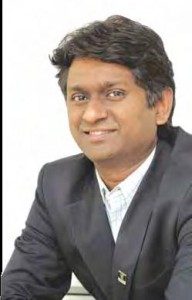 Increasing adaptation of mobile technology has motivated the education sector to take advantage of the innovative capabilities that the technology brings with itself as a digital learning technique in the classrooms today and beyond. Technology not only contributes in making learning attractive and engaging, but also in cutting short investment for IT infrastructure required by educational organisations.
Increasing adaptation of mobile technology has motivated the education sector to take advantage of the innovative capabilities that the technology brings with itself as a digital learning technique in the classrooms today and beyond. Technology not only contributes in making learning attractive and engaging, but also in cutting short investment for IT infrastructure required by educational organisations.

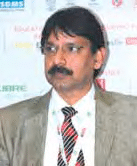
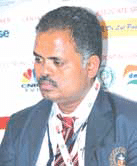
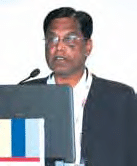
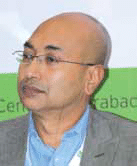



 India has a vibrant rubber sector and ranks second in natural rubber consumption in the world after China. In terms of production, India is the fourth largest producer of Natural Rubber and numero uno in per hectare productivity.
India has a vibrant rubber sector and ranks second in natural rubber consumption in the world after China. In terms of production, India is the fourth largest producer of Natural Rubber and numero uno in per hectare productivity.











